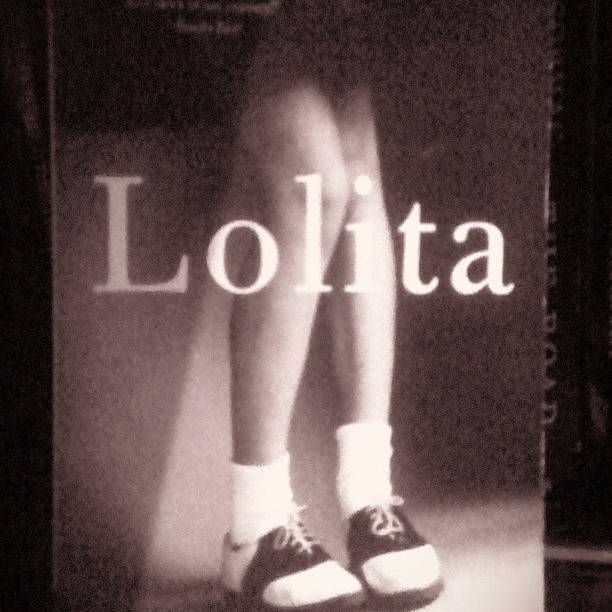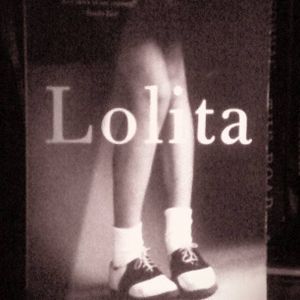
What Next?: Three Books to Read After LOLITA

For your voyeuristic pleasure, here’s a grainy shot of my copy lurking in a shadowy corner of my bookshelf.
Lolita is one of the most beautiful books I’ve ever read, and it made the list of Book Riot Readers’ Top 50 Favorite Novels, so I know that a lot of people agree with me about that. But it’s also one of the most disturbing, and not just for its subject matter, but because the beauty is what you emerge from its pages remembering. It’s unsettling when an author has that kind of power over his or her readers, and Nabokov certainly does, from the opening line onward: “Lolita, light of my life, fire of my loins. My sin, my soul.” Did you get chills? I did.
When I began thinking of what I should suggest reading next, I considered books I knew had similar old man/young girl relationships but also beautiful language and/or engaging writing.
These recommendations might come in handy for those days when it seems that feeling psychologically well is the enemy.
Alice’s Adventures in Wonderland and Through the Looking-Glass* by Lewis Carroll
Tiger, Tiger by Margaux Fragoso
(Trigger warning for survivors of sexual violence. I can’t stress this enough.)
Fragoso’s memoir is a haunting and extremely disturbing glimpse into the life of a young woman who spent her childhood under the spell of an manipulative but charismatic abuser who taught her (through the process of grooming) to be his perfect victim. Tiger, Tiger is scary and sad and awful to hear account in the victim’s voice (some reviews even called it Lolita’s side of the story), but there is power and catharsis in telling the tale as she recalls it, and in doing so graphically and unflinchingly. The title’s reference to Blake is something of a “why?”; it also interestingly mirrors Humbert Humbert’s repetitive name. A difficult but worthwhile, well-written read.
Lamb by Bonnie Nadzam
*totally count as one, not two
(And yes, I left out Reading Lolita in Tehran, but you should totally read that one, too.)
_________________________
Sign up for our newsletter to have the best of Book Riot delivered straight to your inbox every two weeks. No spam. We promise.
To keep up with Book Riot on a daily basis, follow us on Twitter, like us on Facebook, , and subscribe to the Book Riot podcast in iTunes or via RSS. So much bookish goodness–all day, every day.








